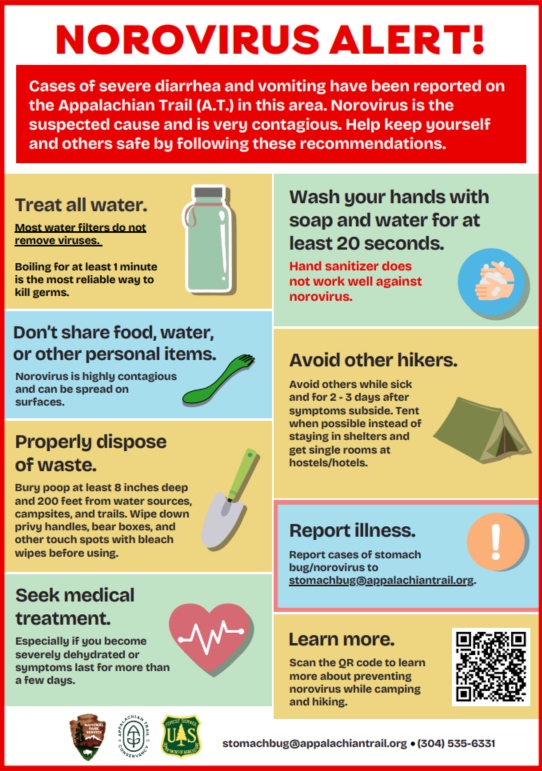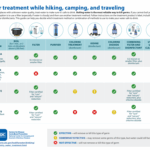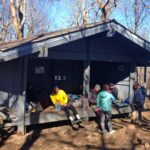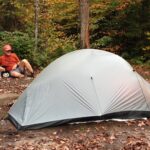Norovirus and Why You Don’t Want to Get It on the A.T.
The ATC typically receives at least one report each year of a hiker contracting a stomach bug on their A.T. hike. And norovirus outbreaks on the Trail have impacted hikers. Help prevent an outbreak this year by practicing good hygiene and following the guidance on this page.
 Norovirus is a highly contagious stomach virus that is transmitted by contact with an infected person, contaminated food or water, or contaminated surfaces, and it is easily spread along parts of the A.T. that experience crowded conditions. Norovirus causes your stomach and/or intestines to become inflamed, which leads to stomach pain, nausea, and diarrhea.
Norovirus is a highly contagious stomach virus that is transmitted by contact with an infected person, contaminated food or water, or contaminated surfaces, and it is easily spread along parts of the A.T. that experience crowded conditions. Norovirus causes your stomach and/or intestines to become inflamed, which leads to stomach pain, nausea, and diarrhea.
Stomach pain, nausea, and diarrhea are bad enough on their own at home but can make for a truly awful experience in the backcountry. While most hikers who get norovirus on the A.T. recover on their own, some must be evacuated. This is because diarrhea and vomiting can lead to dehydration, which can quickly become life-threatening.
The virus has a 12- to 48-hour incubation period and lasts 24 to 60 hours. Infected hikers may be contagious for three days to two weeks after recovery. Outbreaks occur more often where people share facilities for sleeping, dining, showering, and toileting. The virus can spread rapidly in crowded shelters and hostels, and sanitation is key for avoiding and spreading norovirus.
Norovirus & Stomach Bug Prevention on the A.T.
Take the following steps to prevent contracting and spreading the illness:
- Do not eat out of the same food bag, share utensils, or drink from other hikers’ water bottles.
- Wash your hands with biodegradable soap (200 feet from water sources) before eating or preparing food and after toileting.
- In areas where stomach bug has been reported, also consider washing your hands with soap and water after touching gear that has come into contact with the group or other shared surfaces: your shoes, pack, stuff sacks, etc. Check for reports on our Trail Updates page.
- Be aware that alcohol-based sanitizer may be ineffective against norovirus.
- Treat all water. Filters do not get rid of viruses. To learn best how to treat your water, read the CDC’s recommendations for water treatment.
- Follow Leave No Trace guidelines for disposing of human waste.

Reporting Stomach Bugs on the A.T.
Please keep us informed of any stomach bug or norovirus cases by sending an email to stomachbug@appalachiantrail.org with the date and location of the outbreak.

For More Information on Norovirus






